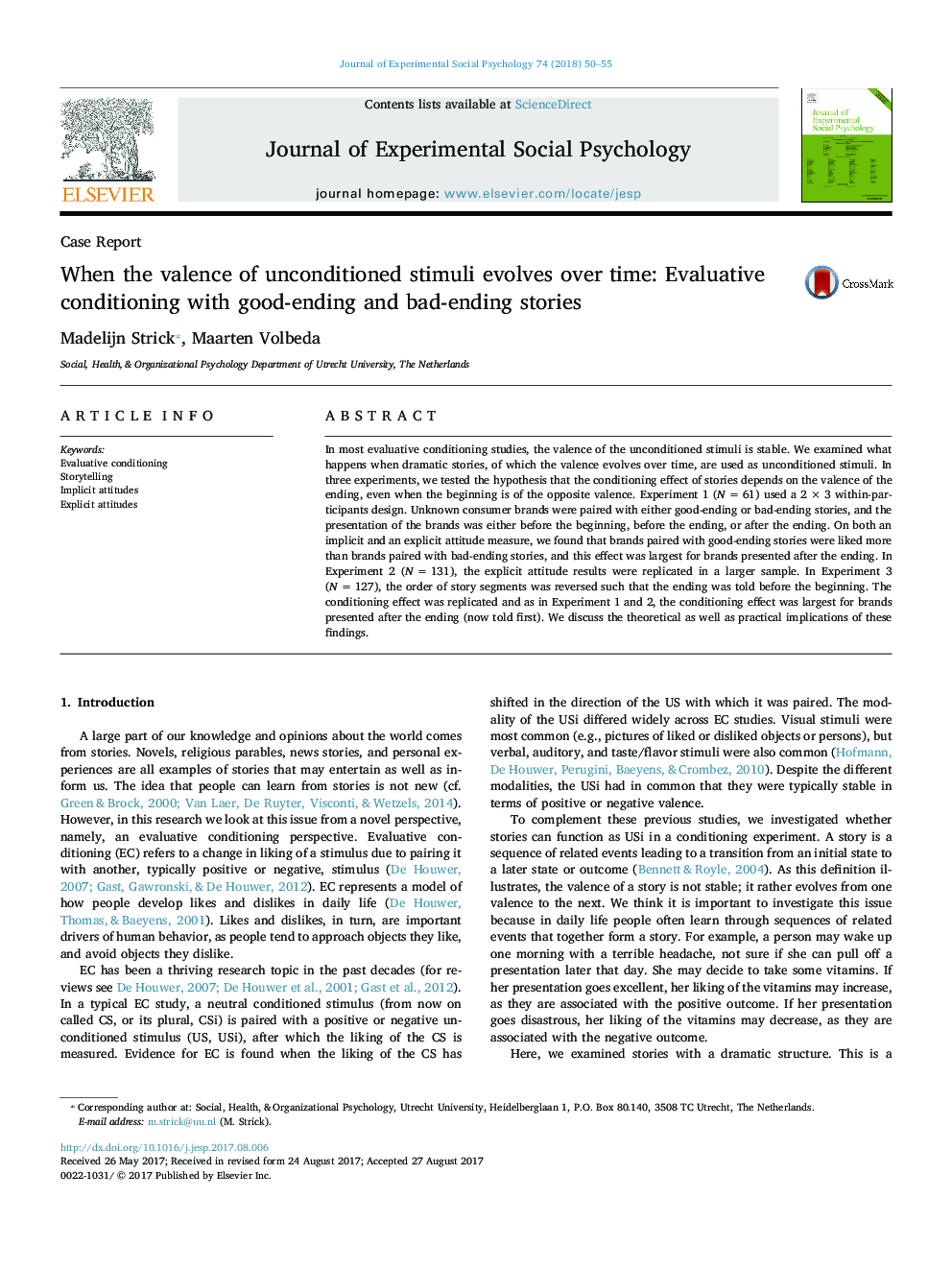| کد مقاله | کد نشریه | سال انتشار | مقاله انگلیسی | نسخه تمام متن |
|---|---|---|---|---|
| 5045590 | 1475849 | 2018 | 6 صفحه PDF | دانلود رایگان |
- Associating neutral objects with good-ending or bad-ending stories changes their likeability.
- It even occurs when the beginning of the story is of the opposite valence.
- Attitude change is strongest when the object is presented after the story ending.
- This shows how people learn from stories.
In most evaluative conditioning studies, the valence of the unconditioned stimuli is stable. We examined what happens when dramatic stories, of which the valence evolves over time, are used as unconditioned stimuli. In three experiments, we tested the hypothesis that the conditioning effect of stories depends on the valence of the ending, even when the beginning is of the opposite valence. Experiment 1 (NÂ =Â 61) used a 2Â ÃÂ 3 within-participants design. Unknown consumer brands were paired with either good-ending or bad-ending stories, and the presentation of the brands was either before the beginning, before the ending, or after the ending. On both an implicit and an explicit attitude measure, we found that brands paired with good-ending stories were liked more than brands paired with bad-ending stories, and this effect was largest for brands presented after the ending. In Experiment 2 (NÂ =Â 131), the explicit attitude results were replicated in a larger sample. In Experiment 3 (NÂ =Â 127), the order of story segments was reversed such that the ending was told before the beginning. The conditioning effect was replicated and as in Experiment 1 and 2, the conditioning effect was largest for brands presented after the ending (now told first). We discuss the theoretical as well as practical implications of these findings.
Journal: Journal of Experimental Social Psychology - Volume 74, January 2018, Pages 50-55
